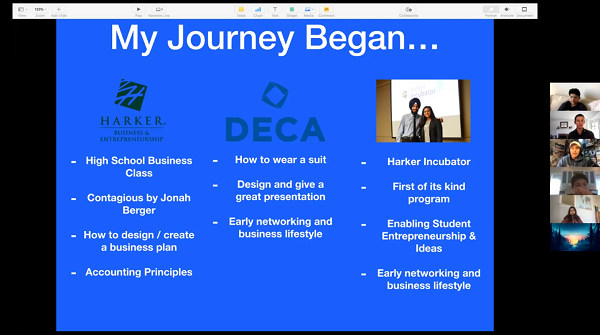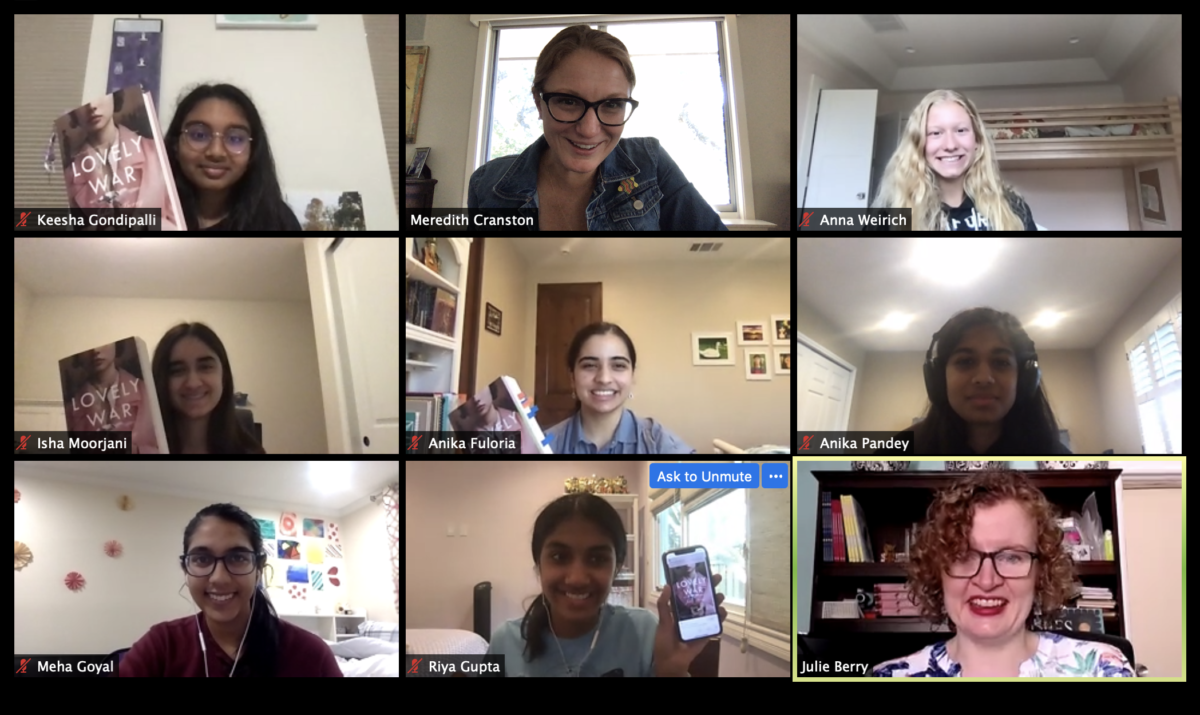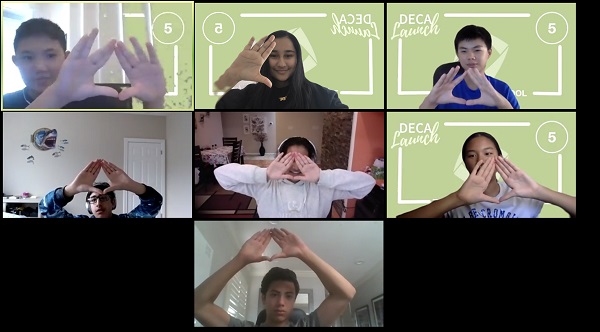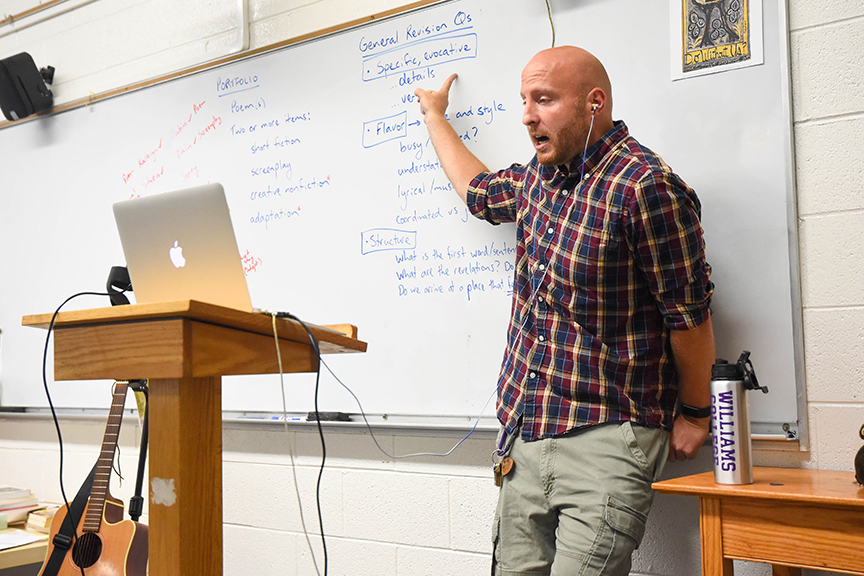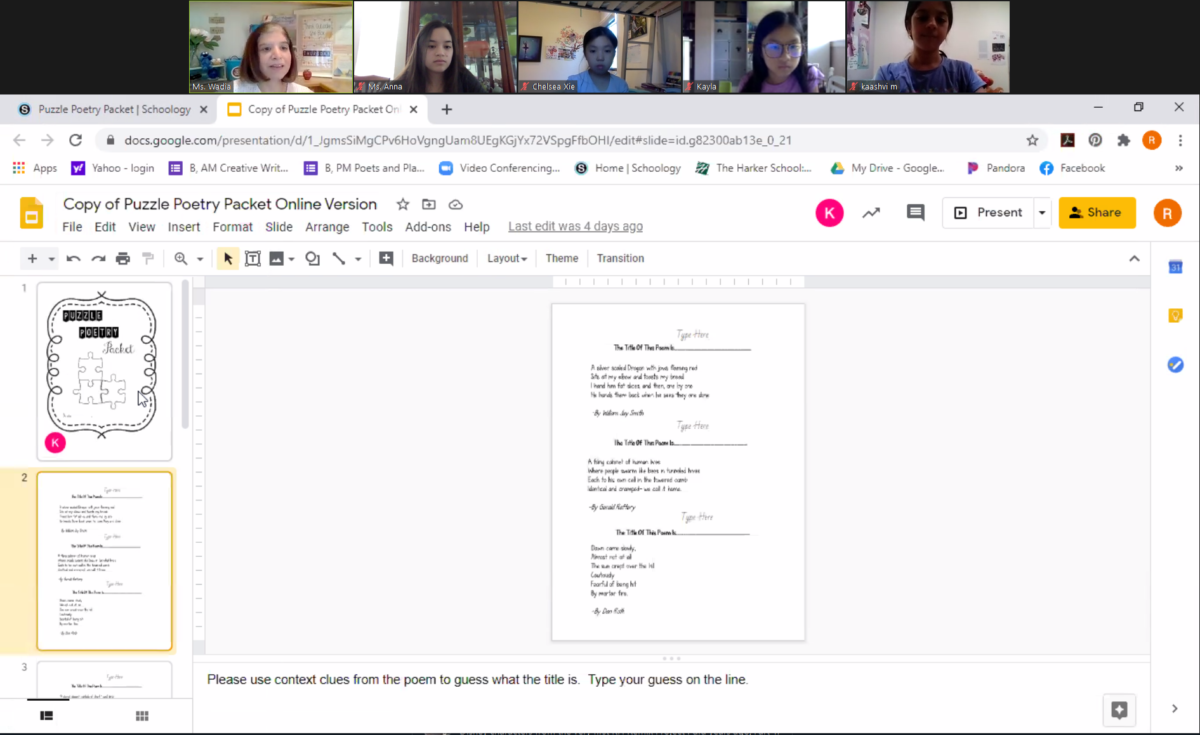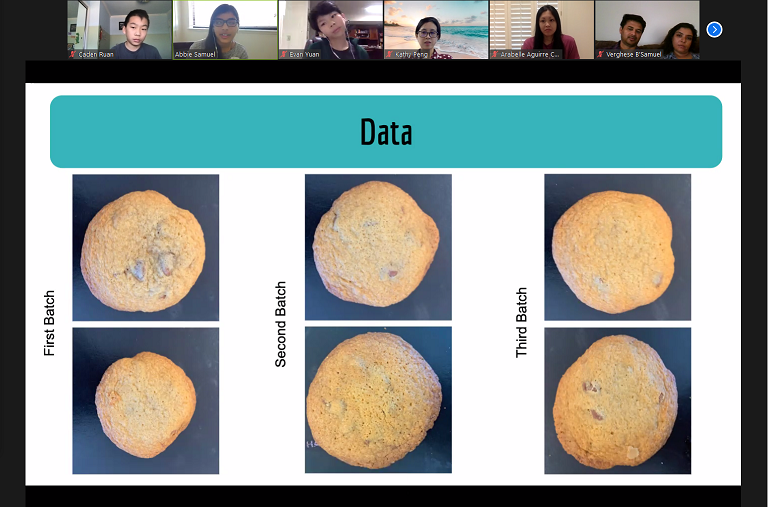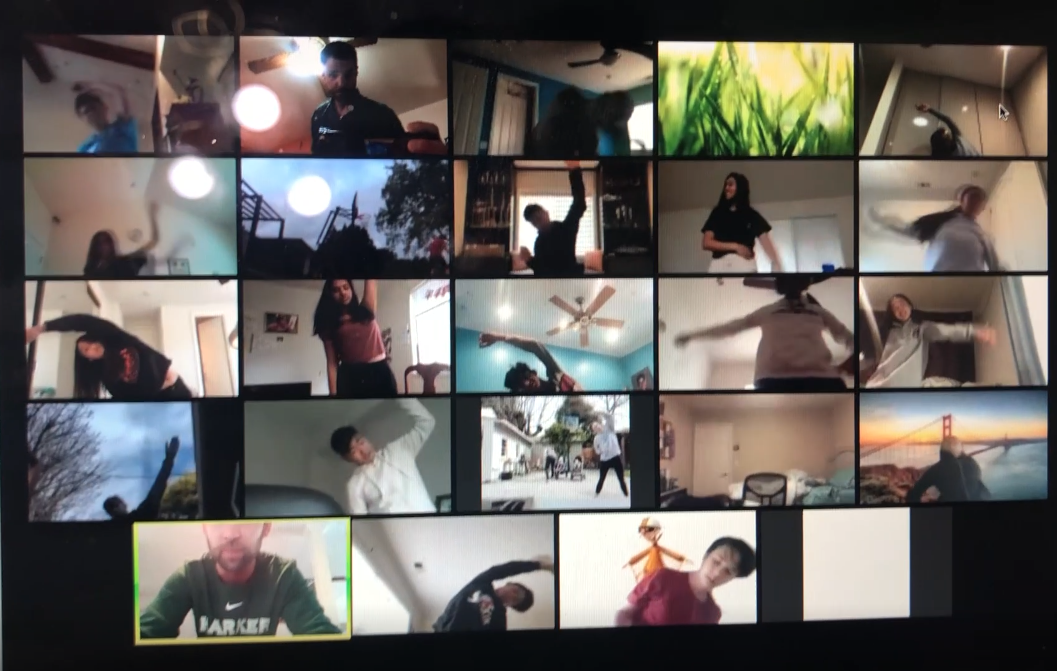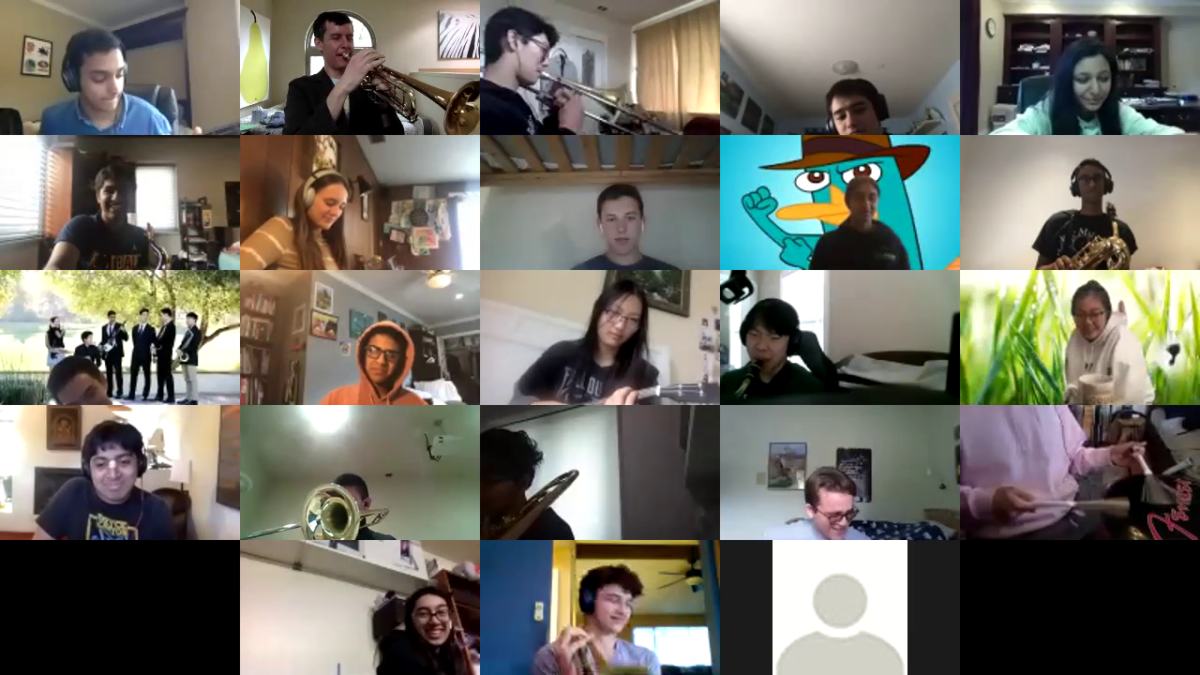Earlier this week, Michael Sikand ‘18 spoke to Michael Acheatel’s gave a special guest lecture to Micheal Acheatel’s business and entrepreneurship students.
Remote Learning
Author Julie Berry discusses novel with upper school students
Last Thursday, Harker’s Recreate Reading program welcomed author Julie Berry to discuss her latest novel, “The Lovely War.”
Fun and learning at annual DECA Launch event
From Aug. 15-16, 70 students attended Harker DECA’s seventh annual launch event, which is designed to introduce prospective members to DECA and The Harker School’s business, economics and entrepreneurship department.
Area high school students bolster writing skills at summer writing workshop
In June and July, Bay Area high school students in grades 9 and 10 bolstered their writing skills at Harker’s Creative Writing Workshop. Working…
Pandemic: Harker Responds
This story originally appeared in the spring/summer 2020 issue of Harker Magazine. “We need 100% compliance on this one,” Debra Nott wrote to lower…
Middle schoolers learn literary principles in Poets and Playwrights class
The middle school Summer Institute’s Poets and Playwrights class offered students in grades 6-8 fun and engaging ways to learn about the many aspects…
Middle school summer class teaches research principles and practices
This summer, middle schoolers with a passion for scientific research enrolled in the Summer Science Research Society (SSRS), a class in which the students…
Upper school teachers explore ways to keep students moving
Many upper school teachers are incorporating a variety of methods to manage the amount of screen time their students are having each day due to…
Classes and hangouts move online as school adapts to closure
The ongoing school closure, which began last week as a result of the COVID-19 pandemic, has dramatically changed the day-to-day lives of Harker students…
